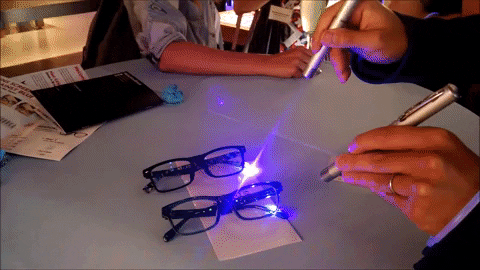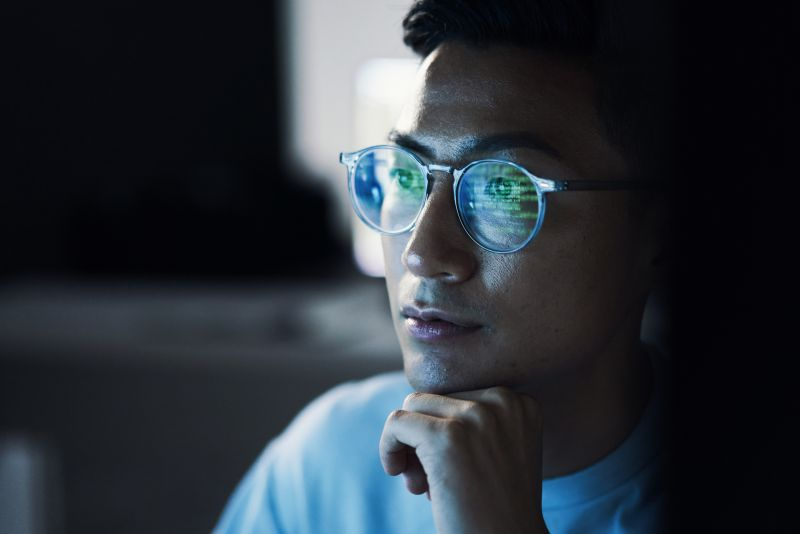Studies Suggest Blue-Light Glasses Might Not Help With Screen-Induced Eye Strain
"People should be aware of these findings when deciding whether to purchase these spectacles," said a researcher in the new review.
We all have been there. We are trying out new glasses, and suddenly, the salesperson starts employing their fear-based sales tactics to get you to upgrade the lenses to ones with blue-light-filtering properties.
But do these blue-light-blocking glasses actually work?
Researchers say they probably do not make any difference to eye strain or sleep quality.
Blue light refers to a range of wavelengths of light that is present in our surroundings, encompassing everything from sunlight and ceiling lights to computer and smartphone screens.
There is evidence suggesting that blue light may impact sleep by inhibiting our brain's ability to secrete melatonin, the hormone responsible for preparing our body for rest, The New York Times quoted Dr Raj Maturi, a spokesman for the American Academy of Ophthalmology, as saying.
However, blue-light-filter lenses are not the solution to the problem. A research paper that reviewed 17 studies concluded that there is almost no difference between standard lenses and blue-light-filter lenses.
The new review, published in the Cochrane Database of Systematic Reviews last week, examined data from 17 randomised controlled trials.
Some of the research studies had as few as five participants, while others involved as many as 156 participants. These studies were conducted over various periods, ranging from less than a day to five weeks.
The authors of the paper admitted that while more research with longer follow-ups and greater diversity in population is required, the data collected from the 17 studies represent the "current best available evidence".
What they found contributes to a growing consensus that blue-light-filtering glasses likely do not prevent or alleviate screen-induced eye strain.
The new review yielded mixed results concerning the correlation between blue-light-filtering glasses and sleep
Some studies showed improved sleep scores among wearers, while others showed the opposite effect.
In the scientific realm, experts have long speculated whether blue light could contribute to 'computer vision syndrome', a condition that involves symptoms such as eye irritation, headaches, and blurred vision.
But, in the consumer world, optical stores and eyewear boutiques worldwide have continued marketing blue-light-blocking glasses as a promised solution to protect against prolonged exposure to digital screens.
Discussing her work on the new review, Dr Laura Downie, an associate professor of optometry and vision sciences at the University of Melbourne, said attributing eye health issues to blue light is a contentious topic.
She explained that the amount of blue light emitted by a phone or computer is actually quite low, hence, whether it is blocked or not is not a factor that does much to ameliorate eye strain.
"We found there may be no short-term advantages with using blue-light filtering spectacle lenses to reduce visual fatigue associated with computer use," CNN quoted Dr Downie as saying.
"It is also currently unclear whether these lenses affect vision quality or sleep-related outcomes, and no conclusions could be drawn about any potential effects on retinal health in the longer term.
"People should be aware of these findings when deciding whether to purchase these spectacles," she added.
With that said, optometrist Dr Robert Johnson told CBS News the blue-light-blocking glasses will not harm wearers, saying that wearing one "causes absolutely no damage".

